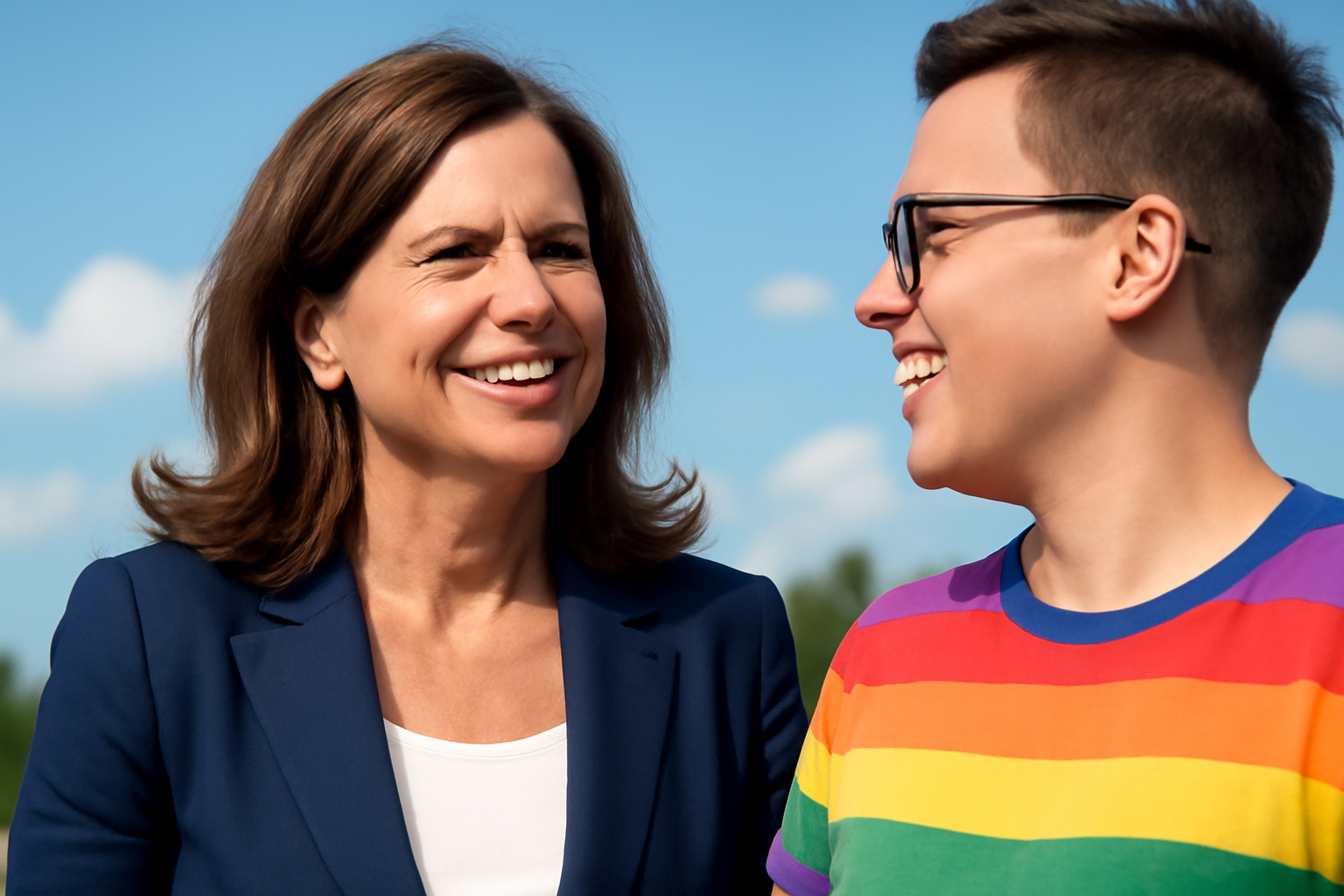
In a recent visit to Delaware, Republican Congresswoman Nancy Mace made headlines by engaging in discussions that have highlighted the ongoing conversation about LGBTQ+ representation in politics. This visit, marked by both controversy and constructive dialogue, serves as a reminder of the diverse perspectives within the political landscape.
Background: The State of LGBTQ+ Representation
LGBTQ+ representation in politics has been a significant topic of discussion for many years. Advocates have tirelessly worked to ensure that elected officials reflect the diverse population they serve. Sarah McBride, a trailblazer and the first openly transgender state senator in the United States, represents Delaware. Her election was a milestone for transgender individuals and the broader LGBTQ+ community, signaling progress and hope for more inclusive governance.
However, this progress is often met with challenges, particularly from political figures who may not fully support the LGBTQ+ community's rights and representation. Nancy Mace's visit to Delaware is seen by some as a response to this evolving political landscape.
Nancy Mace's Visit
Nancy Mace, a Republican Congresswoman from South Carolina, is known for her outspoken views on a variety of issues, including her stance on LGBTQ+ rights. Her visit to Delaware was seen by many as a political maneuver aimed at addressing the increasing influence of figures like Sarah McBride. During her visit, Mace participated in several public events and discussions, drawing attention from both supporters and critics alike.
Some critics argue that Mace's visit was intended to undermine McBride's efforts in advocating for LGBTQ+ rights. However, Mace's team has emphasized that the trip was purely intended to engage with constituents and build bridges across party lines.
A Conversation on Representation
While Mace's visit sparked controversy, it also opened up a broader conversation about representation and inclusivity in politics. Many LGBTQ+ advocates have used this opportunity to highlight the importance of having diverse voices in government, emphasizing that representation goes beyond just having a seat at the table—it requires active participation and advocacy for policies that support marginalized communities.
Sarah McBride, for instance, has been a vocal advocate for LGBTQ+ rights, focusing on issues such as healthcare for transgender individuals, anti-discrimination laws, and mental health resources within the community. Her work underscores the need for legislators who are not only representative of their constituents but also committed to enacting meaningful change.
The Importance of Dialogue
Despite the differing perspectives brought to light by Mace's visit, one positive outcome is the increased dialogue surrounding LGBTQ+ issues. Conversations have been sparked across various platforms, encouraging more people to examine their own beliefs and assumptions about what representation means.
Engaging in these discussions is crucial for fostering understanding and empathy among people with differing views. It also highlights the power of dialogue in driving societal progress and changing perceptions over time.
Looking Forward
As the political landscape continues to evolve, the importance of LGBTQ+ representation remains at the forefront of many advocacy agendas. Whether through the election of openly LGBTQ+ officials or through allies who champion these causes, the goal is to create an inclusive environment where everyone feels represented and heard.
Nancy Mace's visit to Delaware, regardless of its initial intention, has become a catalyst for renewed conversations about equality and inclusion. It reminds us that while progress has been made, there is still much work to be done to achieve true representational equity in politics.
As more individuals engage in these discussions, the hope is that society will continue to move towards greater acceptance and understanding of LGBTQ+ issues, paving the way for future generations of leaders who reflect the diverse fabric of our communities.
Related Posts
Triumphant Trans Woman Wins Legal Battle and Inspires Others to Stand Up for Their Rights
Breaking new ground: a landmark victory in transgender rights After battling in courtrooms and enduring endless challenges, Diana Portillo, a transgender woman, has secured a monumental victory in her decade-long fight against workplace discrimination. The result? Nearly $1 million awarded in a historic settlement. But this isn't just a win on paper—it represents a powerful precedent in combati [...]
Pride Month in Latin America: Protests and Demands for Equality
**Celebrating Pride and advocating LGBTQ+ rights in Latin America** Pride Month in Latin America was a lively mix where celebration met activism. Communities united, not just throwing a party but making a stand—demanding equality and pushing governments toward better protection and rights recognition. Throughout Latin America, pride events erupted in marches and cultural displays, each with a c [...]
Transgender Erasure Actions Implemented by National Park Service
```html Trump administration's impact on national park service and transgender recognition The Trump administration made notable moves in undermining transgender representation, which included directing agencies like National Park Service not include "T" and "Q" when they refered “LGBTQ” in any official communication. This move seems part a broader plan by this administration aimed at reducin [...]